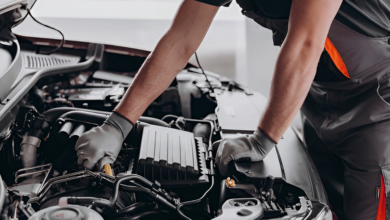Top Electric Cars Available in Pakistan
Best electric cars in Pakistan 2024. Discover top-rated EVs, prices, and charging options for eco friendly driving. Compare now.

The automotive industry in Pakistan is gradually embracing electric vehicles (EVs) as a sustainable and cost-effective alternative to traditional fuel-powered cars. With rising fuel prices and increasing environmental concerns, electric cars are gaining popularity among Pakistani consumers. Several international and local automakers have introduced their EV models, offering a blend of performance, efficiency, and modern technology. This article explores the top electric cars available in Pakistan, their features, pricing, and benefits to help potential buyers make an informed decision.
As the government introduces incentives such as tax exemptions and reduced import duties on EVs, more people are considering switching to electric mobility. From luxury models like the Audi e-tron to affordable options like the Nissan Leaf, Pakistan’s EV market is expanding rapidly. Below, we delve into the details of the best electric cars currently available, their pros and cons, and what buyers can expect in terms of charging infrastructure and long-term savings.
Top Electric Cars Available in Pakistan
The Growing Electric Vehicle Market in Pakistan
Pakistan’s automotive sector has long been dominated by petrol and diesel vehicles, but recent years have seen a shift toward electric mobility. The government’s Electric Vehicle Policy 2020-2025 aims to convert 30% of all vehicles to electric by 2030, encouraging manufacturers and consumers to adopt greener alternatives. Several factors contribute to this transition, including soaring fuel costs, environmental pollution, and advancements in battery technology.
Leading Automakers
Leading automakers such as Audi, BMW, Nissan, and Hyundai have introduced their electric models in Pakistan, while local companies like Jolta Electric are also making strides in the EV market. Charging infrastructure, though still developing, is expanding with stations being set up in major cities like Karachi, Lahore, and Islamabad. This growth indicates a promising future for electric vehicles in the country.
Top Electric Cars Available in Pakistan
Audi e-tron
The Audi e-tron is a premium electric SUV that combines luxury with high performance. With a range of up to 400 km on a single charge, it is one of the most advanced EVs in Pakistan. The e-tron features Quattro all-wheel drive, a futuristic interior with dual touchscreens, and fast-charging capabilities. While its price is on the higher side (around PKR 25-30 million), it appeals to buyers seeking a high-end electric driving experience.
BMW i4
BMW’s i4 is a sleek electric sedan offering a perfect balance of sportiness and sustainability. It delivers up to 590 km of range, making it ideal for long drives. The i4 boasts BMW’s signature driving dynamics, a luxurious cabin, and advanced driver-assistance systems. Priced between PKR 20-25 million, it competes directly with Tesla’s Model 3 but with the prestige of the BMW brand.
Nissan Leaf
The Nissan Leaf is one of the most affordable and reliable electric cars in Pakistan, with a price range of PKR 6-8 million. It offers a practical range of 240-360 km, depending on the variant, and comes with ProPILOT assist for semi-autonomous driving. Its compact size and efficient performance make it a great choice for urban commuters.
Jolta JE-70
For those looking for a locally assembled electric car, Jolta Electric’s JE-70 is an excellent option. This compact hatchback offers a range of 150-200 km and is priced affordably at PKR 2.5-3 million. While it lacks the luxury of imported models, it provides an economical solution for daily commuting.
Hyundai Kona Electric
The Hyundai Kona Electric is a versatile SUV with a range of 450 km, making it suitable for both city and highway driving. It features a modern design, a spacious interior, and fast-charging support. Priced around PKR 12-15 million, it is a strong competitor in Pakistan’s mid-range EV segment.
Charging Infrastructure
One of the biggest concerns for EV buyers in Pakistan is the availability of charging stations. Fortunately, companies like KElectric and Power China are investing in charging networks across major cities. The government is also offering incentives such as lower import taxes, reduced electricity tariffs for EV charging, and subsidies to promote electric vehicles. Home charging solutions are becoming more accessible, with many EV owners installing personal charging units.
Government Support
The Pakistani government has introduced several initiatives to promote electric vehicles (EVs) as part of its Electric Vehicle Policy 2020-2025. One of the key measures includes tax exemptions and reduced import duties on electric cars, making them more affordable for consumers. Additionally, the government has waived customs duties on EV parts to encourage local assembly and manufacturing.
Lower Running Costs
One of the biggest advantages of electric cars is their significantly lower running costs compared to petrol or diesel vehicles. Since electricity is cheaper than fossil fuels, EV owners can save up to 70% on fuel expenses. Additionally, electric vehicles have fewer moving parts, reducing maintenance costs like oil changes and engine repairs. Over time, these savings make EVs a more economical choice despite their higher upfront price.
Environmentally Friendly
Living an environmentally friendly lifestyle means making choices that reduce harm to the planet. This includes conserving resources, reducing waste, and opting for sustainable products. Small actions, such as recycling, using reusable bags, and saving energy, can make a big difference. By adopting eco-friendly habits, we help protect nature for future generations.
Reduced Maintenance
A reduced maintenance design minimizes the need for frequent repairs or upkeep, saving time and costs. This is achieved by using durable materials, simplified systems, and long-lasting components. Products and structures with low maintenance requirements are ideal for busy homeowners and businesses. By reducing upkeep, they also lower long-term expenses and enhance convenience.
Government Incentives
Government incentives are financial benefits or support programs designed to encourage specific actions, such as adopting renewable energy or boosting economic growth. These incentives can include tax credits, grants, subsidies, or low-interest loans for businesses and individuals. By reducing costs and risks, they promote innovation, sustainability, and investment in key sectors.
Challenges and Considerations
Despite the advantages, there are challenges such as higher upfront costs, limited charging infrastructure in rural areas, and battery replacement expenses. However, with technological advancements and increasing local production, these issues are expected to diminish over time.
Read More: The IT Ministry launches a National Cyber Security Framework
Conclusion
The Electric Cars market in Pakistan is evolving rapidly, with a growing number of options for consumers. From luxury models like the Audi e-tron and BMW i4 to budget-friendly choices like the Nissan Leaf and Jolta JE-70, there is an EV for every need and budget. Government support and improving infrastructure further enhance the appeal of electric cars, making them a smart long-term investment.
As more automakers enter the Pakistani market and charging stations become widespread, the shift toward electric mobility will accelerate. For those considering an EV, now is an excellent time to explore the available options and contribute to a greener, more sustainable future.
FAQs
What is the most affordable Electric Cars in Pakistan?
The Jolta JE-70 is currently the most budget-friendly EV, priced around PKR 2.5-3 million.
How long does it take to charge an electric car?
Charging time varies; fast chargers can recharge up to 80% in 30-40 minutes, while home charging may take 6-8 hours.
Are electric cars expensive to maintain?
No, EVs have fewer moving parts, reducing maintenance costs compared to petrol/diesel cars.
What is the range of most electric cars in Pakistan?
Most EVs offer 200-450 km per charge, depending on the model and battery capacity.
Does Pakistan have enough charging stations?
Major cities are seeing growth in charging infrastructure, but rural areas still need more development.











